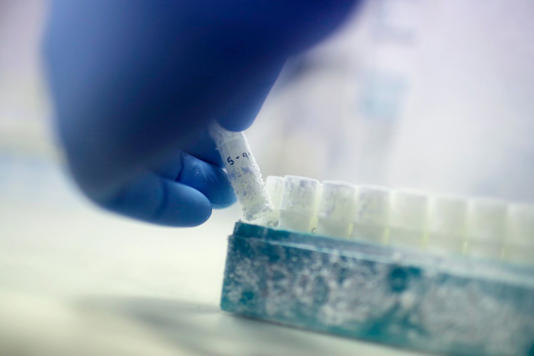The Food and Drug Administration’s (FDA) announcement to drop the ban on sperm donations from gay and bisexual men marks a significant milestone in LGBTQ+ rights and reproductive health. For decades, longstanding regulations have prohibited anonymous sperm donations from men who have had sex with other men within the previous five years, citing concerns about HIV transmission. However, the FDA’s proposed changes aim to modernize screening protocols, prioritize evidence-based science, and promote inclusivity in assisted reproductive technologies. This article examines the implications of the FDA’s decision, the historical context of the ban, and the broader implications for LGBTQ+ rights and reproductive justice.
Understanding the FDA’s Proposed Changes:
Under the proposed revisions, the FDA plans to eliminate the broad ban on sperm donations from gay and bisexual men and implement more targeted screening measures to assess HIV risk. By focusing on accurate HIV testing and adopting evidence-based practices, the FDA seeks to ensure the safety of donated sperm while removing discriminatory barriers that disproportionately affect LGBTQ+ individuals. Moreover, the proposed changes extend beyond sperm donations to encompass other cell and tissue donations, reflecting a commitment to equitable access to reproductive services for all.
Historical Context of the Ban:
The ban on sperm donations from men who have sex with men dates back to the HIV epidemic of the 1980s when concerns about the transmission of the virus led to restrictive policies aimed at mitigating risk. However, advances in HIV testing technology and medical understanding have rendered the ban outdated and stigmatizing. Critics argue that the ban perpetuates discrimination and ignores the reality of modern HIV prevention and treatment strategies, undermining efforts to promote sexual health and reproductive rights.
Implications for Reproductive Health and LGBTQ+ Rights:
The FDA’s decision to end the ban on sperm donations from gay and bisexual men has far-reaching implications for reproductive health and LGBTQ+ rights. By acknowledging the outdated nature of the previous policy and embracing evidence-based approaches to HIV prevention, the FDA promotes equity and inclusivity in assisted reproductive technologies. This shift not only expands access to donor sperm for individuals and couples seeking fertility assistance but also affirms the dignity and autonomy of LGBTQ+ individuals in family planning decisions.
Challenges and Opportunities Ahead:
While the FDA’s proposed changes represent a significant step towards ending discrimination in sperm donation practices, challenges remain in implementing and enforcing inclusive policies. Ensuring widespread adoption of updated screening protocols, addressing lingering stigma and discrimination, and promoting awareness of LGBTQ+ reproductive health rights are essential components of this transformative process. Moreover, ongoing collaboration between medical professionals, advocacy groups, and policymakers is crucial for advancing reproductive justice and affirming the rights of all individuals to build families on their own terms.
As the FDA moves forward with finalizing its proposed changes, the focus shifts towards fostering a culture of inclusivity and respect within the field of assisted reproductive technologies. By dismantling outdated barriers and embracing evidence-based practices, the FDA sets a precedent for promoting equitable access to reproductive health services and affirming the rights of LGBTQ+ individuals and families. This landmark decision not only reflects progress towards greater acceptance and recognition of diverse family structures but also underscores the importance of centering reproductive justice in healthcare policy and practice.
The FDA’s decision to end the ban on sperm donations from gay and bisexual men marks a pivotal moment in the ongoing struggle for LGBTQ+ rights and reproductive justice. By prioritizing evidence-based science and rejecting discriminatory practices, the FDA demonstrates its commitment to promoting equity and inclusivity in assisted reproductive technologies. Moving forward, it is imperative to build upon this momentum, address remaining challenges, and ensure that all individuals have access to comprehensive reproductive health care that respects their dignity, autonomy, and rights.
